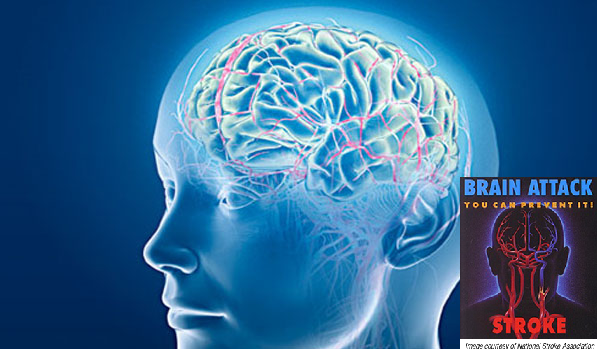Shimla: Devoid of any glucose or blood storage, the human brain ages or gets damaged very fast in ‘brain attack’ or ‘stroke’ patients and healthcare professionals in the rough and tough terrain of Himachal Pradesh are gearing up to deploy remote management methods for timely intervention for an ambitious early stroke emergency care service delivery model.
Revealing the roll out plan at a two day state workshop that concluded here today, Dr MV Padma, Professor Neurology at All India Institute of Medical Sciences (AIIMS), Delhi said that a hub and spoke model with a telemedicine or mobile technology link up would be used to get the stroke care pilot project implemented within 3 months. It would be three phase project, she added.

“An early CT scan being the basic requirement for diagnosing a bleed or a clot in a brain attack patient, a physician in a field outpost hospital with a simple mobile phone link up with a specialist brain physician in Delhi, IGMC hospital Shimla or Tanda Medical College and hospital should be able to provide timely medicine to clear out clotting in a brain stroke patient and save him or her from full blown paralysis,” she said.
Early detection of brain attack symptoms, backed by a CT scan and timely treatment within 4 and half hours from the time when the stroke occurred can save the patient from suffering permanent damage,” stated Dr Padma.
India after China has the dubious distinction of having the largest number of brain attack patients anywhere in the world. Cold statistics show that of the global 5.7 million stroke patients per annum, 1.6 million alone are from India.
Defying common perceptions that strokes only strike the old and infirm who are over 60 years of age, about 30 percent of the victims are less than 40 years old. Every 40 seconds, some person in India suffers from a brain attack and after every 4 minutes a stroke related death is registered.
Early symptoms of a brain attack can be detected by noticing distortions in the facial profile, speech, loss of vision, sensation, hearing, balance; seizures or going into coma. From preventing permanent damage to the brain, an early treatment close at hand is what we intend to try and execute under this pilot project, said Dr Padma.
With most district hospitals as well as many private clinics in the state equipped with CT scan facilities, the government also intends to rope in the 108 ambulance service for undertaking early stroke care service under the project, said Vineet Chaudhary, additional chief secretary who looks after state healthcare services.
Before the service is extended to other parts of the country, Himachal Pradesh is the first state where such a pilot project is being tried out, he added.
As Editor, Ravinder Makhaik leads the team of media professionals at Hill Post.
In a career spanning over two decades through all formats of journalism in Electronic, Print and Online Media, he brings with him enough experience to steer this platform. He lives in Shimla.




